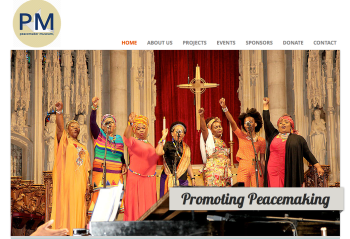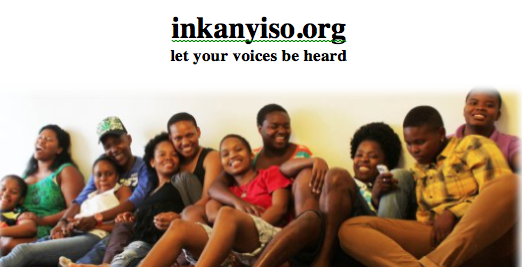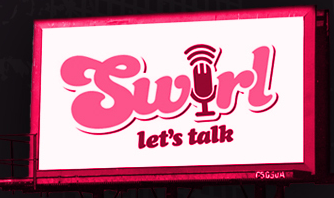Legal emancipation can give homeless queer youth the tools they need to become independent
 By Cathy Kristofferson, January 21, 2013.
By Cathy Kristofferson, January 21, 2013.
Thinking about a comment I had heard that maybe we need to ‘think out side the box’ for solutions to help with issues of queer youth homelessness I thought of emancipation. It’s not a new or original idea, just one that doesn’t seem to get any traction here in Massachusetts. The first time I heard about how it would be a useful tool was when talking with homeless queer youth and young adults on Boston Common at an event I took part in back in 2010 where they were telling me how valuable it would have been have been had they been able to emancipate from their rejecting parents.
What is Emancipation?
Emancipation is a legal process through which a minor child obtains a court order to end the rights and responsibilities that the child’s parent have in relation to a child who is under 18 such, to include, but not limited to, financial support, decision making and general authority over the child. There can be either a partial or complete emancipation.
Why do unaccompanied homeless youth need Emancipation?
As minors, unaccompanied homeless youth may be unable legally to obtain housing, buy essential goods, engage in other transactions necessary to live independently, or make their own decisions about medical care, education, and other personal matters, without parental consent. In many cases of homelessness, queer youth have been kicked out of the home and factually discarded by their parents in any event.
 The National Law Center on Homelessness & Poverty reports that 33 states have such an emancipation process, but Massachusetts is not one of them. And of the 33 that do many still require parental consent which is an obstacle for queer youth. There is no MA General Law that defines the process for youth to follow to gain emancipation from their parents and although this is not a queer specific issue it is an issue where the queer youth are the most likely to qualify.
The National Law Center on Homelessness & Poverty reports that 33 states have such an emancipation process, but Massachusetts is not one of them. And of the 33 that do many still require parental consent which is an obstacle for queer youth. There is no MA General Law that defines the process for youth to follow to gain emancipation from their parents and although this is not a queer specific issue it is an issue where the queer youth are the most likely to qualify.
That qualification for emancipation is the need for independence from parents who have rejected and disowned the child, parents who already provide the child with no financial support and parents who will never accept a child back or at least not within the ‘short term’ of the remaining period of being a minor. Emancipation declares a youth an adult before the age of 18 for purposes such as allowing access to financial benefits and entitlements, and for signing legally binding documents, such as a lease, serves as a critical tool for those who have been forced to mature quickly. It allows the emancipated youth to make their own decisions that otherwise would be left up to their parents or other legal guardians, who for homeless youth are not available at all.
Letting parents ‘off the hook’ for the financial support of their children is not the intent of emancipation just an unfortunate side effect. Partial emancipation that retains some form of financial support would be ideal.
For unaccompanied homeless queer youth, emancipation would provide access to housing and medical services without parental consent. Medical and mental health access is needed by all homeless youth but is often especially needed for transgender youth who might require timely medical intervention such as hormone blockers.
Emancipation is not for every unaccompanied homeless youth, queer or otherwise, because some may not be mature enough. But it should be available for those who are and can make use of the opportunities it grants. It is important that emancipation requires no parental consent for queer youth since many are rejected when coming out to their parents, which is happening now at younger ages. Sadly 26% of them are immediately evicted from their homes, and many leave sometime after the abuse that often follows coming out, and so the age at which youth can be emancipated should be flexible, also noting that these youth are sometimes forced to ‘grow up’ quickly on the streets.
As a matter of fact, the Alone Without a Home report released in September 2012 states:
Give youth authority to make important decisions about their own health and safety consistent with their maturity
- Establish emancipation procedures in all jurisdictions, with individualized assessment of each youth’s ability to live independently, and permit young people to initiate the emancipation process; and establish procedures for parents and youths to agree to emancipation without court involvement;
- Permit minors to contract for necessities, while providing appropriate protections;
- Establish statutory guidelines so licensed health care practitioners can provide medical care and services to an unaccompanied youth who consents if the medical practitioner reasonably believes that the youth understands the benefits and risks of the care and is giving informed consent, and the care would be to the minor’s benefit; protect such practitioners from civil or criminal liability when they render medical care or service in good faith to unaccompanied youth.
It is difficult to imagine the Department of Children and Families promoting or even accepting emancipation as a solution since reunification is always their goal. But for homeless queer youth that is seldom in their best interests with homophobic and abusive families placing them at physical and emotional risk. These youth ought to be given the best tools available. An opportunity to take charge of their own lives seems like a good solution for many and so the law ought to be available for each case to be judged on its own merits.
Related links
- Alone Without a Home / A State-By-State Review Of Laws Affecting Unaccompanied Homeless Youth (National Law Center on Homelessness and Poverty)
- Emancipation and the Legal Rights of Minors in Massachusetts (Children’s Law Center of Massachusetts)
- The Ongoing Plight of Homeless Queer Youth (oblogdeeoblogda.me)
- Homeless queer youth | the Massachusetts Special Commission (oblogdeeoblogda.me)




















 PoochParkWear customizes hoodies and t-shirts, the good, the naughty, the in between, whether proud or quirky let them be seen. We also offer biker jackets, croc or pleather collars, a variety of collar charms, and our special Zinja beaded collars made by a co-op of HIV-positive South African women, the Sisonke women who weave the beads onto the collars.
PoochParkWear customizes hoodies and t-shirts, the good, the naughty, the in between, whether proud or quirky let them be seen. We also offer biker jackets, croc or pleather collars, a variety of collar charms, and our special Zinja beaded collars made by a co-op of HIV-positive South African women, the Sisonke women who weave the beads onto the collars.

Isn’t it an ugly world sometimes that we even have to be thinking of this? If those lousy parents due to their own bigotry, are allowed to duck the responsibility of the child they brought into this world- then as soon as the minor is emancipated, those parents ought to lose their dependent child tax deduction & it ought to be donated to organizations which later support these children. THAT would be fair.
Yes, it is an ugly world when we have to think about this! But when lack of parental consent keeps youth from getting access to support and services some tool is necessary. AND I think garnering the dependent child tax deduction is a great idea! I’m sure the IRS will help out with that…:)